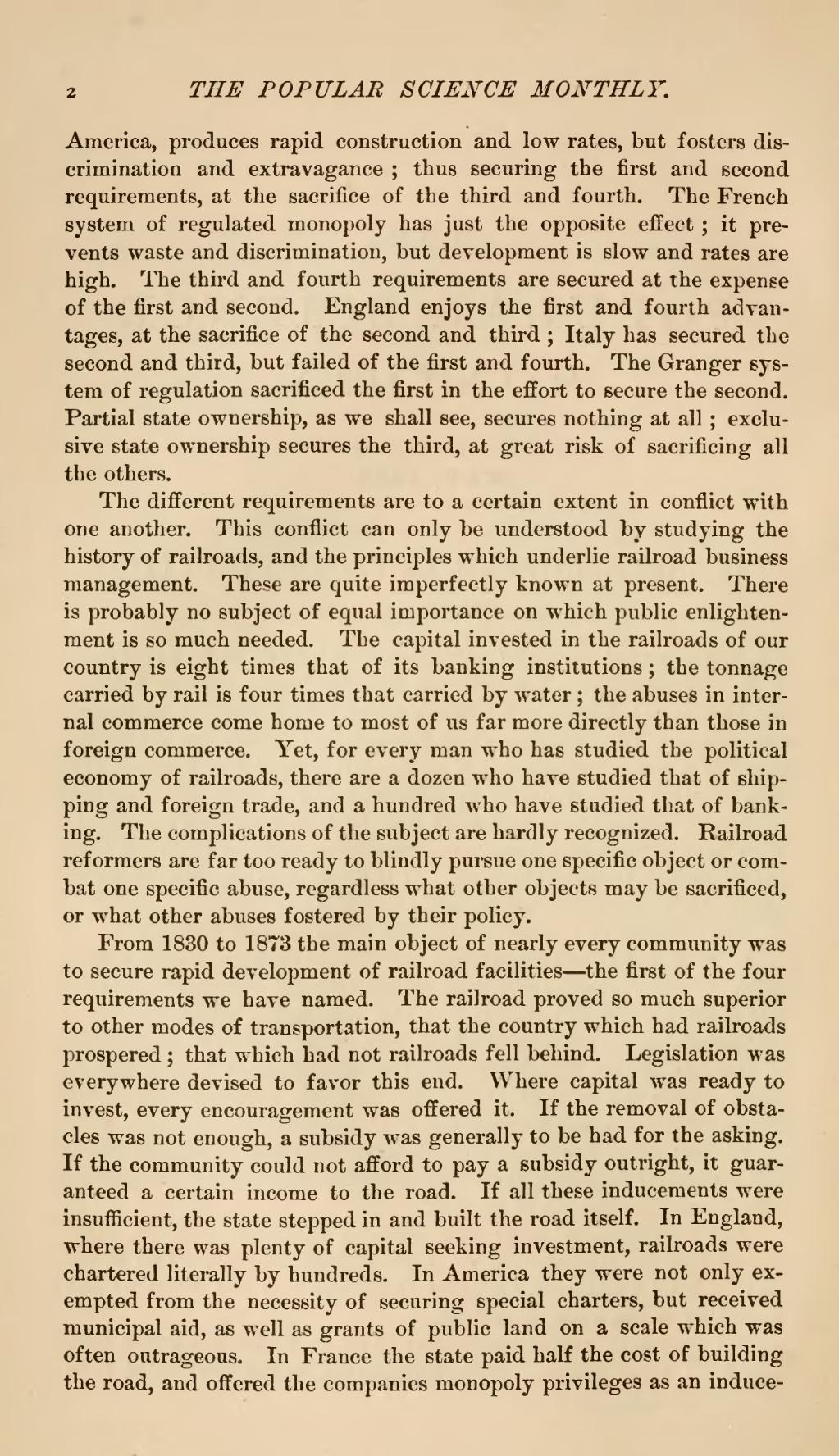America, produces rapid construction and low rates, but fosters discrimination and extravagance; thus securing the first and second requirements, at the sacrifice of the third and fourth. The French system of regulated monopoly has just the opposite effect; it prevents waste and discrimination, but development is slow and rates are high. The third and fourth requirements are secured at the expense of the first and second. England enjoys the first and fourth advantages, at the sacrifice of the second and third; Italy has secured the second and third, but failed of the first and fourth. The Granger system of regulation sacrificed the first in the effort to secure the second. Partial state ownership, as we shall see, secures nothing at all; exclusive state ownership secures the third, at great risk of sacrificing all the others.
The different requirements are to a certain extent in conflict with one another. This conflict can only be understood by studying the history of railroads, and the principles which underlie railroad business management. These are quite imperfectly known at present. There is probably no subject of equal importance on which public enlightenment is so much needed. The capital invested in the railroads of our country is eight times that of its banking institutions; the tonnage carried by rail is four times that carried by water; the abuses in internal commerce come home to most of us far more directly than those in foreign commerce. Yet, for every man who has studied the political economy of railroads, there are a dozen who have studied that of shipping and foreign trade, and a hundred who have studied that of banking. The complications of the subject are hardly recognized. Railroad reformers are far too ready to blindly pursue one specific object or combat one specific abuse, regardless what other objects may be sacrificed, or what other abuses fostered by their policy.
From 1830 to 1873 the main object of nearly every community was to secure rapid development of railroad facilities—the first of the four requirements we have named. The railroad proved so much superior to other modes of transportation, that the country which had railroads prospered; that which had not railroads fell behind. Legislation was everywhere devised to favor this end. Where capital was ready to invest, every encouragement was offered it. If the removal of obstacles was not enough, a subsidy was generally to be had for the asking. If the community could not afford to pay a subsidy outright, it guaranteed a certain income to the road. If all these inducements were insufficient, the state stepped in and built the road itself. In England, where there was plenty of capital seeking investment, railroads were chartered literally by hundreds. In America they were not only exempted from the necessity of securing special charters, but received municipal aid, as well as grants of public land on a scale which was often outrageous. In France the state paid half the cost of building the road, and offered the companies monopoly privileges as an induce-
